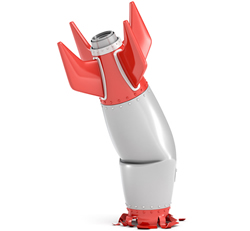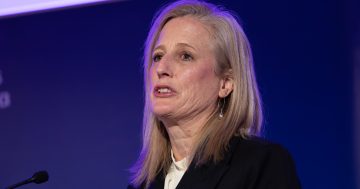Michelle Cheng* says women tend to attribute their success to working hard — rather than taking smart risks.

Image: Gearstd
Conventional wisdom suggests one of the best ways to nurture great employees is to encourage them to take risks and fail.
The problem is, not everyone is comfortable with this proposition — specifically, most women employees, suggests a new survey.
Consulting firm KPMG surveyed 2,012 college-educated women ages 18 to 64 in the white-collar workforce in the US last March.
Only 43 per cent of respondents were open to taking bigger risks associated with career advancement.
Meanwhile, 69 per cent of those surveyed were comfortable taking small risks.
KPMG defines “bigger risks” as moving across the country for a job or switching careers; “smaller risks” included tasks like presenting to a board of investors or taking on a big assignment.
KPMG’s Chief Diversity Officer, Michele Meyer-Shipp says a number of economic and cultural factors help explain the findings.
Not surprisingly, younger women tend to be bigger risk takers because they have fewer financial and familial obligations holding them back.
Forty-five per cent of respondents with less than five years of experience were open to taking big risks versus 37 per cent of women with 15 or more years of experience.
Another exception: Women of colour are more willing to take bigger risks compared to white women (57 per cent versus 38 per cent).
“Women of colour are a little more comfortable getting uncomfortable because that’s how we have to navigate every single day of our lives,” says Meyer-Shipp.
Women who hold back often tend to worry about how they’re being perceived, the survey suggests.
When asked about their biggest concerns at work, 41 per cent of respondents cite looking like they don’t know as much as they should.
Twenty-nine per cent of women cite not being confident enough.
And when they do fail, 86 per cent of women admit to being more cautious about their future steps.
It’s worth noting that the survey has its limitations.
The results may be different at fast-growing startups with a well-established risk-taking culture — or with female leadership.
Still, if you suspect you might have some women on your team who are holding back, women founders say intentional encouragement can go a long way.
Heidi Zak, founder of lingerie company ThirdLove, says at least 80 per cent of her 330-person company are women.
She makes a point of telling the story of how she created ThirdLove — and the numerous mistakes she made along the way — to new employees.
“We … talk about them so that everyone realises that it’s OK to make mistakes,” she says.
Zak also makes sure to identify those employees who they think have potential for internal promotions and start those conversations early to be able to coach them.
“It just highlights that there are women in leadership roles who can help promote, within and externally, more women [up the ladder],” she says.
Jennifer Young, co-founder and Chief Marketing Officer at Outdoorsy, says that as one of the few women on the executive team, it’s her responsibility to seek out ways to help other women take career risks.
She gives the example of a woman who joined the marketing team last year, but six months in, revealed she really wanted to be a product manager.
It meant losing a person on her own team, but Young helped connect the employee with the product team and move her into a product manager role.
As a leader, it’s your job to figure out how best to give your employees a voice — even your most introverted team members, says Galyn Bernard, co-founder of children’s clothing startup Primary.
She says in meetings she makes a point of directly asking for the opinion of those who tend to be more shy.
Boosting the confidence of female employees does not need to take much effort, say the founders.
Zak says she and other executives hold informal coffee chats with their employees to see how they’re doing and where they want to go in their careers.
“I’m a very confident person,” Zak says.
“I think part of my confidence comes from being able to say ‘I don’t know everything, and I’m learning on the job, too.’”
* Michelle Cheng is an editorial assistant and reporter for Inc . She tweets at @mbcheng15 and her website is michellebcheng.com.
This article first appeared at www.inc.com.











